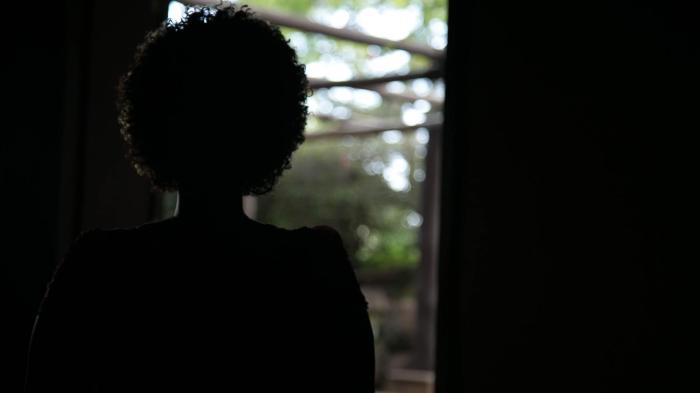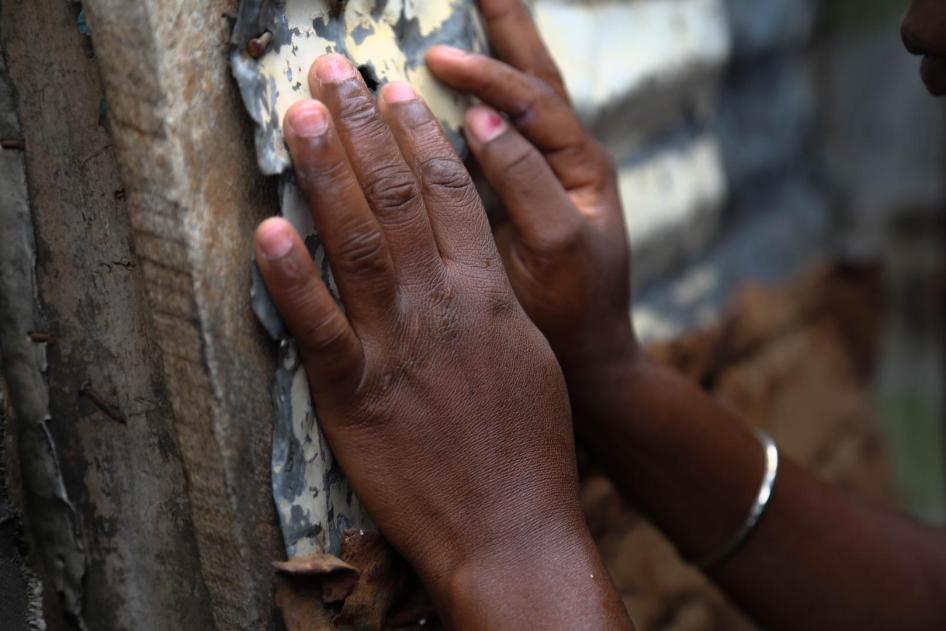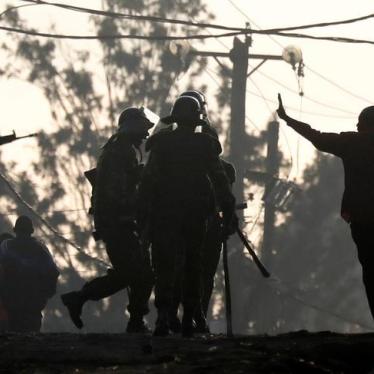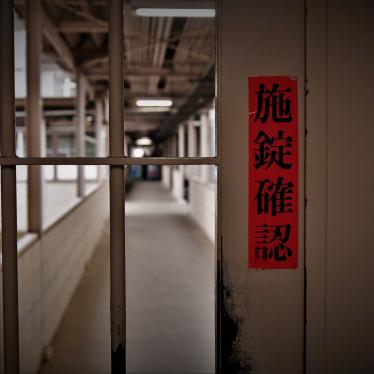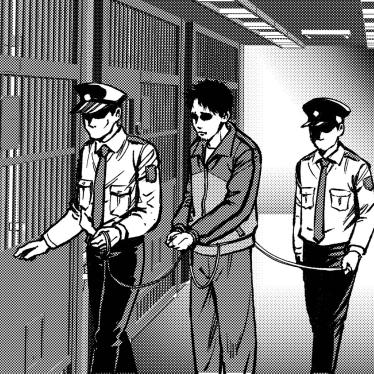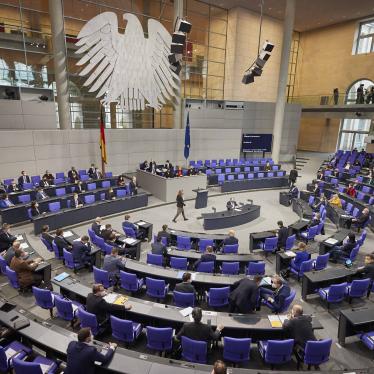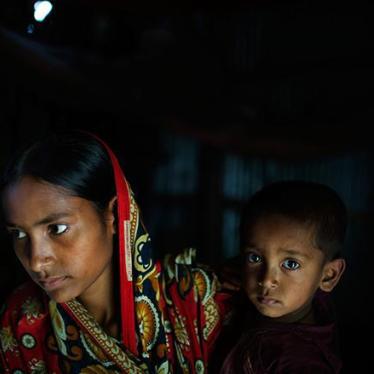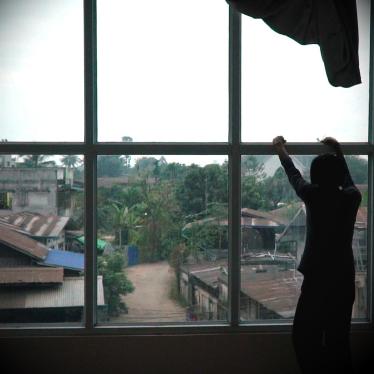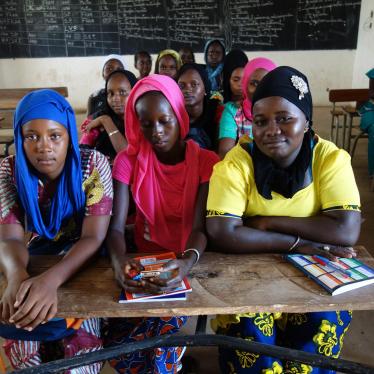ヒューマン・ライツ・ウォッチの女性の権利担当上級調査員アニエス・オディアンボは、「被害者たちに性暴力が残した爪あとは壊滅的なものだ」と述べる。 「話をしてくれたほとんどすべての女性と少女が、身体的苦痛と深刻な精神的外傷を負っており、加害者の罪が決して問われないことを恐れていた。」
ヒューマン・ライツ・ウォッチは、性暴力の女性被害者68人、男性被害者3人、目撃者12人に聞き取り調査を行った。また、ケニア人活動家および海外の活動家、女性に支援サービスを提供している地域ボランティア12人にも話を聞いた。多くの被害者が基本的な医療やメンタルヘルスのサービスを受けたり、法の裁きを模索するも、大きな壁に突き当たっていることが本調査で明らかになった。
聞き取り調査に応じた女性と少女たちは、2人以上の加害者によるひどい集団レイプを受けたと語った。多くが膣や肛門をレイプされ、異物や土なども挿入されたという。小さな子どもを含む家族の目前でレイプされたケースも複数あった。警察官、あるいは銃・警棒・催涙ガス・鞭を持ち、ヘルメットなどの対暴動装備をつけた制服姿の男たちにレイプされたと、証言者の大半が話している。少なくともひとつのケースで、少女がレイプの後死亡した。
ある27歳の女性は8月7日に出産し、8月11日に3人の警察官によってレイプされた。「その後、私の人生は無駄だと感じます」と言う。「ほかの人と話すこともなくなりました。とても悲しい。まるで人生が終わってしまったみたい。自殺を考えています。」
多くの女性や少女が障がいの残る外傷を負ったほか、仕事や家事ができなくなるような健康被害を被った被害者もいる。少女たちは悪夢や不眠、無力感、恐怖、不安に苛まれ、勉強が手につかないと語った。
ほとんどの被害者は、HIVや性感染症、望ましくない妊娠を予防するための薬物治療を含む、レイプ後の医療や心理ケアを受けていなかった。不安感、サービス費用や交通費、汚名、医療施設の不足、タイムリーな治療の重要性や被害者が無料で治療を受けられる場所に関する情報の不足などが主な壁として被害者の前に立ちはだかる。治療を受けた女性の一部は、サービスが包括的なものではないために、性暴力の法医学的証拠の記録を取ってもらえず、また医療やカウンセリング支援、または刑事司法制度への適切な紹介もなかったと話した。
性暴力犯罪が長年ほとんど処罰されなかったことから、ケニアでは女性が性犯罪を警察に通報する心理的障壁が高い。警察に届け出たと述べた女性はかなり少数で、多くの女性が、長く続く人権侵害と腐敗の歴史から警察に信頼を寄せていないと話した。報復を恐れているという女性もいる。性暴力を届け出ようとした女性の中には、陳述も取られずに帰されたり、嘲笑や口頭での侮辱、苦情申立てのフォローアップをしてもらえなかったと証言するひともいる。
警察官の目前で別の5人と一緒にレイプされたと言う女性は、事件を届け出ようとした時のことを詳述した。「彼らは『加害者が警察官だとなぜ分かった?』と聞くんです。『もしレイプされたなら、病院に最初に行くはずだ。証拠はどこにある?どうやって信じろというのだ?』と。レイプを楽しんだに違いないって、そう私たちに言いました。」
ケニア政府は、選挙関連の性犯罪や被害者の苦しみを、長い間顧みないできた。数千人規模の女性と少女が、2007年〜08年に起きた政治暴動の期間にレイプされたと推定されており、加害者には治安部隊要員も含まれる。被害者たちは約10年の月日が流れた今も、深刻な身体的・心理的な傷害、そして社会経済的な困難に苦しんでいる。しかし、適切な捜査が行われたり、加害者の責任が問われたケースはごくわずかにすぎない。
2007年〜08年の暴力事件の被害者を支援する政府計画は、レイプ被害者を除外するもので、被害者たちは医療他の支援を受けられないでいる。被害届に対する障壁や、法医学的証拠の収集をめぐる諸問題、加害者を罰するための信頼にたる真正かつ公正な捜査・訴追に当局が消極的であることが、2007年〜08年の選挙関連レイプ事件後の主要課題であり、いまでも問題であり続けている。
ケニア政府はそのアプローチを変えなければならない。政府は、性暴力の被害者すべてが、心理社会的、精神衛生的な医療を家族も含め受けられるようなレイプ後ケアをタイムリーかつ内密に、質の高いかたちで確保すべきであり、また被害者がどこで無料治療を含むレイプ後ケアを受けられるのかを、コミュニティに知らせるべきだ。選挙関連の性暴力事件をめぐるすべての申立てに対して、信頼にたる捜査が行われることも必要だ。
オディアンボ上級調査員は、「ケニア政府が性暴力被害者のニーズを満たさずにいたり、加害者を訴追しないでいることを全く恥じていない一方で、被害者が被害者たることに苦しみ、恥じている状態は許されない」と指摘する。「ケニア政府は選挙関連の性暴力事件を何事でもなかったかのようにふるまうことはやめ、すべての被害者が適切な医療と法の裁きを受けられるようにすべきだ。」
証言の抜粋は以下をご覧ください。
Names of victims have been changed for their protection.
Rose Otieno, 37, was in her house with her five children on the night of August 11. She said that two men dressed in green-and-black uniforms, boots, and helmets broke into her house. One had a gun, the other a baton and a whip. They asked her where her husband was. “One asked me to say, ‘I do not support Raila [Odinga, the presidential challenger], I support Uhuru [Kenyatta, the winner].’ I refused…. The other one said, ‘Let’s teach her a lesson.’ He raped me in the presence of my children.” She said that due to the stigma and rejection attached to rape: “I didn’t go to hospital. I feared, I was ashamed. I have never gone to hospital. I feared because if you tell someone, even the doctor, you will hear about it.”
Liz Nzau said that she was on her way home from work on the night of August 11 when she met a group of young Kikuyu men who were out celebrating Kenyatta’s victory. They asked her, “Why are you not joining the celebration? You are Luo, you are NASA [National Super Alliance] supporter.” She said: “They took me into a shack where there were five other women. They brought some dirty-looking men who raped us as police walked around the shack. They were moving from one woman to another. They were slapping us and beating us with a rubber whip, and urinating on us. One of the women had her [menstrual] period and they wore a plastic paper bag when raping her. One of the women said they inserted a medicine bottle in her anus.”
On August 11, Gladys Moraa went to help her neighbor’s young child, who had been hit with a teargas canister. In the ensuing chaos, Grace tripped and fell: “A police officer kicked me on my upper back with his booted feet. I couldn’t move. He raped me and left. Another one came, kicked me on the stomach and back, and raped me. I thought I would die. I was in serious pain.” “My back pains a lot,” she said. “My business was destroyed, and now I do casual work washing for people. But most of the time it is difficult. I have problems bending.”
Gladys Moraa said that since she was raped: “even a slight sound scares me. I used to have nightmares. If I got counseling, it would really help me. I feel so sad when I remember. I was not counseled at the hospital.” Moraa heard a scream as a Human Rights Watch researcher was interviewing her and she jumped out of her seat saying, “Are those the police? Are those police?”
Purity Onyancha said that her 17-year-old daughter, Peris Onyancha, and a friend were gang raped together on August 14. Peris was left for dead, and her friend died following the rape. “She trembles when she sees boys,” the mother said. “I am worried about her mental health, and how she will perform at school. Sometimes her teacher calls me to say she is not talking, or she’s just walking around the school. When I talk to her, she says she is feeling dizzy and has headache, but when she is checked in the hospital there is nothing.”
Mercy Maina and her sister were raped on the night of August 13 by men she described as “police with rastas [dreadlocks].” She said that since the rape, “I feel pain during sex and there is a yellowish discharge. I smell and I have to shower many times a day. When I go near people I feel anxious, like they will smell me.”
Grace Kungu said she was raped on August 12 on her way home from work:
"They took me to an unfinished building and all four raped me in front [vaginally] and behind [anally]. Since that day, when I am pressed urine just comes out. Even stool, if I hold for long I find that I have stained my underwear. I wear a sanitary pad sometimes or tissue or a handkerchief to prevent leakage. I have a lot of pain in my lower abdomen. I take painkillers all the time."
